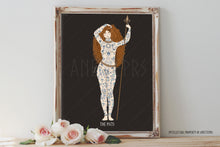

The Picts were an ancient group of people who inhabited the eastern and northern parts of Scotland during the late Iron Age and early Medieval periods. The etymology of their name, "Pict," is believed to come from the Latin word "Picti," meaning "painted or tattooed," a reflection of their distinctive body art.
One of the most fascinating aspects of the Picts was their matrilineal heritage system. Unlike many other ancient societies that traced descent and lineage through the male line, the Picts emphasized matrilineal descent. This means that genealogical importance was given to the mother's line rather than the father's. Such matrilinear practices challenge our conventional understanding of hereditary systems in ancient times, emphasizing the unique cultural elements of the Picts.
The Picts are often famously associated with tattoos and body paint, particularly the color blue. Ancient writers, like the Roman historian Julius Caesar, wrote about the blue designs that adorned the bodies of these tribes, linking them with the use of woad, a plant from which a blue dye can be extracted. The Picts would create intricate designs, which were possibly symbols of their warrior status, clan affiliations, or religious beliefs.
During their conquest of Britain, the Romans faced resistance from tribes like the Picts. Their opposition wasn't just direct; they employed guerrilla tactics, leveraging the highland terrains. The Antonine Wall, akin to Hadrian's Wall, marked the Roman Empire's boundary and defended against the Picts. Though Romans tried to conquer the Picts, they never succeeded.
It should be noted, however, that much about the Picts remains shrouded in mystery. The Pictish stones provide some of the most direct evidence of Pictish culture and art, but their exact meanings and purposes are still debated among scholars. Despite the limited direct records from the Picts themselves, their influence on the shaping of Scotland's early history is undeniable.




